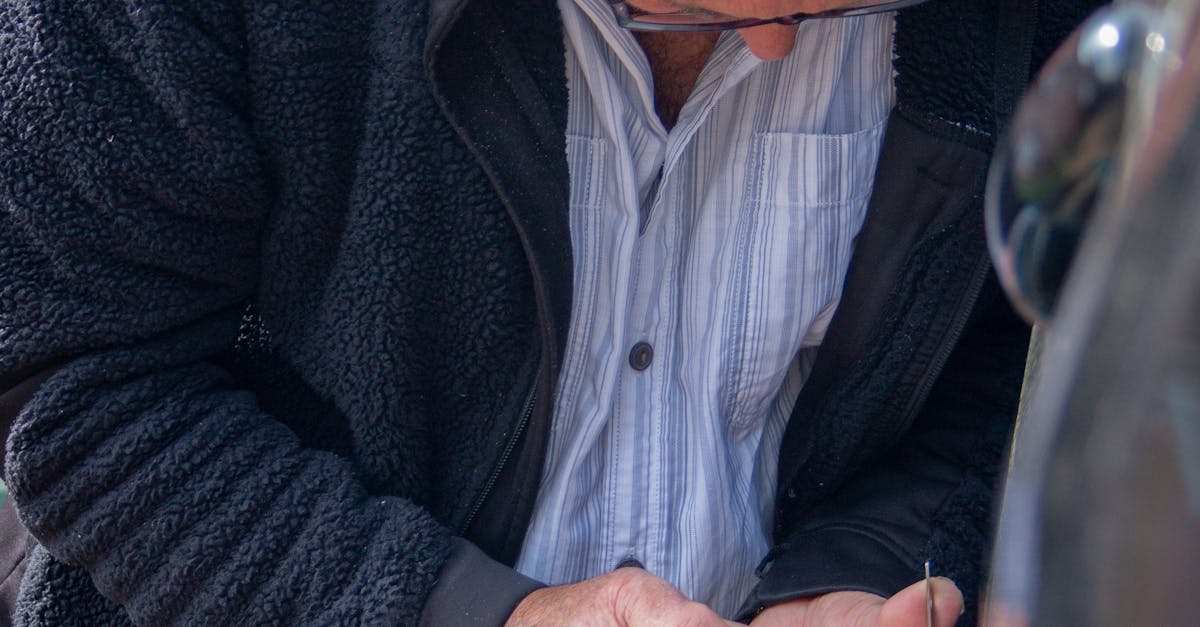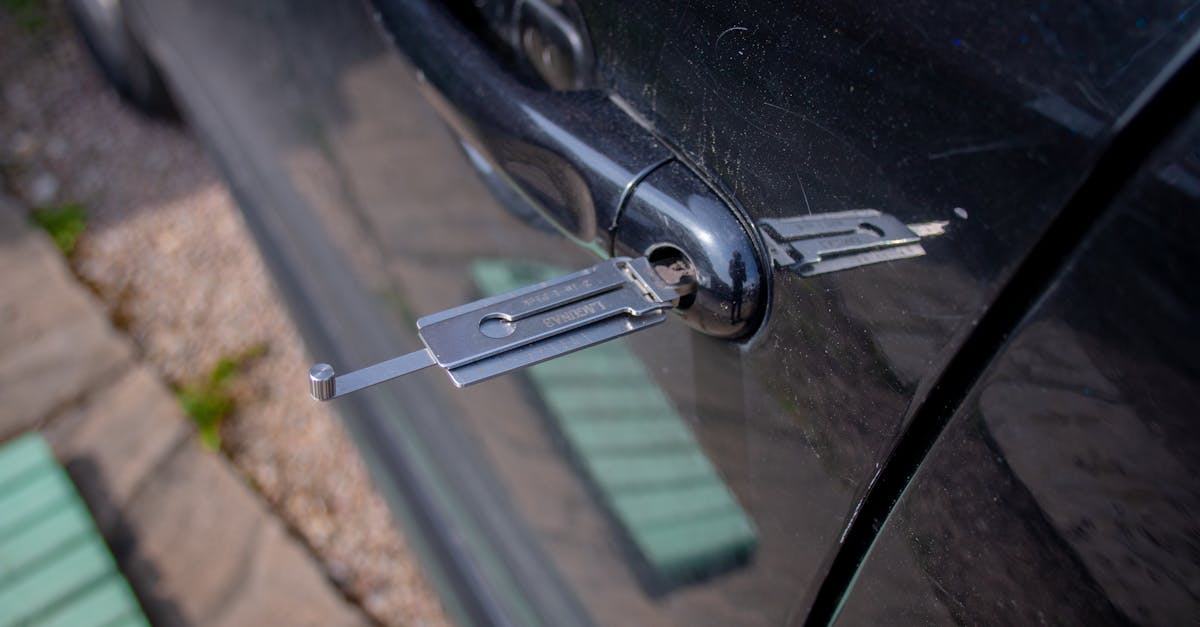
Advantages of Replacing Locks
Lock replacement offers several important benefits that enhance both security and convenience. New locks often come with advanced features that provide higher levels of protection against unauthorized access. With technology evolving, replacing old locks with modern alternatives can significantly decrease vulnerabilities. Additionally, new locks are generally designed for smoother operation, making them easier to use on a daily basis.
Another advantage lies in the aesthetic appeal of new locks. Over time, locks can wear down and lose their visual appeal, detracting from the overall appearance of a door. Choosing to invest in lock replacement allows homeowners to select designs that complement their property’s style. This not only boosts the home's security but also enhances its curb appeal. Upgrading to new, stylish locks can make a significant difference in how a property is perceived.
Security Improvements with New Locks
Upgrading to new locks not only enhances security but also offers the chance to employ the latest locking technologies. Modern locks often come equipped with features such as advanced deadbolts and smart lock systems that provide increased resistance to lock picking and bumping. Investing in high-quality lock replacement can significantly deter unauthorised access and bolster the overall safety of your property.
Additionally, replacing old or damaged locks reduces vulnerabilities that may arise from wear and tear. Older locks may have outdated mechanisms that are easier for intruders to exploit. By opting for lock replacement, homeowners can ensure that their security measures align with contemporary standards, effectively safeguarding their premises against potential threats.
When Lock Replacement is Necessary
There are several situations in which lock replacement becomes essential. If a lock is damaged, whether from wear and tear or an attempted break-in, its integrity may be compromised. Even if it still functions, a weakened lock can pose a serious security risk. A lock that frequently jams or requires excessive force to operate could also indicate that it's nearing the end of its lifespan, necessitating lock replacement for your peace of mind.
Additionally, changes in personal circumstances can trigger the need for lock replacement. Moving into a new home without knowing how many copies of the keys exist can leave you vulnerable. Similarly, if you’ve experienced a change in relationships or employment, new locks can ensure your safety and security. In both scenarios, prioritising lock replacement helps safeguard your property from unauthorised access.
Signs You Need to Replace Your Locks
Frequent key issues can indicate the necessity of lock replacement. When keys become difficult to insert, turn, or remove, it suggests wear and tear. These problems often lead to frustration and may compromise your security, making it essential to consider replacing the locks before they fail completely.
Another sign pointing to potential lock replacement is a visible deterioration of the lock itself. Rust, corrosion, or physical damage can weaken the overall structure and may render the lock less effective at deterring intruders. Ensuring the integrity of your locks is crucial, and recognising these signs early can help avoid more significant security breaches down the line.
The Lock Replacement Process
The lock replacement process involves several key steps to ensure a secure and effective outcome. Initially, it is vital to assess the current locking mechanism and determine the type of lock to be installed. Factors such as the level of security required, the material of the door, and the overall aesthetics should be considered. Gathering the necessary tools and materials, such as the new locks and screws, is essential before commencing the installation.
Once preparations are complete, the old lock needs to be removed carefully. This typically involves unscrewing the lock from the door and ensuring all components are taken out without damaging the surrounding area. With the old lock removed, the new lock can be inserted and secured in place. Testing the new lock for smooth operation and effectiveness is crucial to confirm that the lock replacement has been completed successfully.
How to Replace Your Locks
Replacing locks can be a straightforward process for many homeowners. Begin by gathering the necessary tools, which typically include a screwdriver, a measuring tape, and a new lockset that matches your door specifications. Remove the existing lock by unscrewing it from the door. Take care to keep track of any screws or components that may be reused with the new lock.
Once the old lock has been removed, ensure that the door is clear of debris and that the new lock fits properly. Follow the manufacturer's instructions for installation. Usually, this involves inserting the deadbolt or doorknob assembly into the door and securing it with screws. After installation, test the lock to confirm it operates smoothly. This process of lock replacement enhances both security and functionality at your home.
FAQS
What is the difference between rekeying and replacing locks?
Rekeying involves changing the internal mechanism of a lock so that it works with a new key, while replacing locks means removing the entire lock and installing a new one.
Is rekeying locks always cheaper than replacing them?
Generally, rekeying is less expensive than replacing locks, as it requires less time and materials. However, the cost can vary based on the type of lock and other factors.
When should I consider replacing my locks instead of rekeying?
You should consider replacing your locks if they are damaged, outdated, or if you want to upgrade to a more secure locking mechanism.
How can I tell if my locks need to be replaced?
Signs that your locks may need replacing include difficulty turning the key, visible damage, rust or corrosion, or if you've recently moved into a new home and want to enhance security.
Can I replace locks myself, or should I hire a professional?
While some homeowners may choose to replace their locks themselves using DIY methods, hiring a professional locksmith can ensure that the locks are installed correctly and securely.
